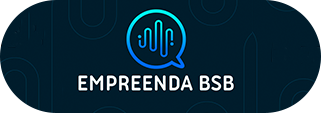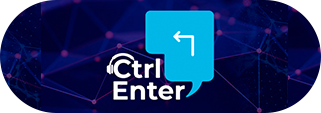Have you ever stopped to think about how much has changed in recent years?
- Youtube made its first video available in 2005 and, today, it has more than 1 billion users;
- Facebook emerged in 2004 and today has more than 1.4 billion users who use the platform daily to interact, watch news, share information and even do business;
- Before, “drone” meant a military weapon. Today, even pizzerias use it to make deliveries;
-Bitcoin? It didn't even exist. And this week it was considered common currency in El Salvador.
- 10 years ago, there were more than 6 billion human beings on Earth and only 1 billion had access to the internet. Today, there are more than 7 billion people and we have 3 billion with access to the internet.
Lots of changes, right? And fast! As a result, a lot of demand has also changed.
Monitoring the behavior of people and the market and understanding what opportunities are is an exercise that must be done by anyone who wants to take advantage of them.
Technological changes offer us immediate opportunities, and, with the intense use of the internet and social networks, they provide us with data all the time and from everyone, which ends up generating countless information for making decisions and formulating actions.
And it is impossible to compare the amount of information we have today with what we had 10 years ago. We have reached a point where it is humanly impossible to process so much information! Therefore, Data Science has become increasingly important to understand the complexity of the world we live in today.
“In the connected world we live in today, there is a huge generation of data and a race at all times. Even more so because most people on the planet have a large generation of data that marks what they do, what they buy, where they work: their cell phone. So, in Advertising and Economics, for example, it is necessary to know what people like and what they buy ”, explains the coordinator of the Data Science Study Group at IDP, professor Claudiomar Matias Rolim Filho.

The professor also talks about the importance of knowing how to analyze data to base accurate decisions without “guessing”. To achieve this, it is increasingly necessary for people to learn more about programming languages, such as R.
“You can’t do any data work without a spreadsheet and you need data to portray the data. You can use Excel if you want, but it's like the difference between digging a hole with a shovel and a backhoe: if you need to dig a hole and use a shovel, you can do it, but it takes a lot longer. Excel is the shovel and Languages are the excavator, as it does things much more elegantly, quickly and accurately. Therefore, a person who knows how to operate a backhoe is much further ahead than a person who uses a shovel”, says Claudiomar Filho.
When asked about the importance of programming language, Claudiomar says that the tendency is for us to have more and more data and, more and more, people know how to operate data. Therefore, over time, organizations will also demand more people with this knowledge and, whoever masters the data, will find it easier to enter the market.
Therefore, Claudiomar organized a free (and certified!) mini-course on the topic for the IDP Open Class!
The mini-course “ Learn Data Science without hassle with Rstudio ”, a free integrated development environment software for R, will teach elementary tools for manipulating Big Data and generating insights through this language.
And, if you don't know anything about programming, no problem! The idea of the course is exactly to open your mind and teach you a little about this new market need.
Let's go?








